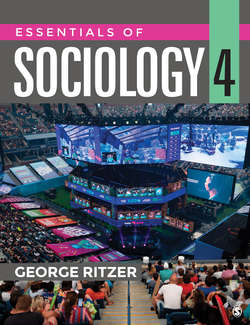Читать книгу Essentials of Sociology - George Ritzer - Страница 112
На сайте Литреса книга снята с продажи.
Robert Wuthnow
Оглавление© Princeton University Press
What are the daily experiences of Americans living in rural areas? What values are most important to them, and how do these influence their political views? Is rural America homogeneous? Robert Wuthnow and his research assistants conducted in-depth interviews with over one thousand residents in rural areas to discover the answers to these questions. Their main finding is that rural Americans belong to moral communities and feel a special sense of place and obligation to each other. Most rural residents live in or near small towns, where they work, shop, attend schools and church services, and socialize. These towns are the physical spaces that reinforce the local norms and customs of moral communities, such as attending community events and interacting regularly with their neighbors. But moral communities are also imagined in the sense that although not all who belong to them personally know each other, they feel like they do and share the same values. Wuthnow (2018) argues that “rural America is not a homogeneous census bloc,” so we should be careful not to essentialize its residents (5). However, most are white (85 to 90 percent) and politically and socially conservative. Therefore, their moral communities are often shaped by exclusion or “othering.”
Many moral communities in rural America feel threatened by social forces beyond their control. The population has been declining in most of these areas, which has resulted in local businesses and schools closing. In addition to a lack of jobs, lower education levels, higher rates of teenage pregnancy, and drug addiction are struggles that rural communities face to an inordinate degree. The moral communities that Wuthnow studies blame Washington, D.C., and Hollywood for the moral decline in America and fight to protect their culture and uphold their social norms. A vote against their economic self-interest is often a vote for their cultural—and in particular religious—beliefs. ●
Visit edge.sagepub.com/ritzeressentials4e to
Read an interview with Robert Wuthnow on Vox.
Watch Wuthnow discuss his book on C-SPAN.
Southern Europeans, especially in Italy, are increasingly having difficulty in dealing with waves of immigrants from North Africa. In fact, many would-be immigrants are dying in accidents at sea before they even get to Italy as they seek to navigate the Mediterranean Sea in overcrowded and rickety boats. For years Italy and other countries sought to prevent migrants from leaving North Africa, especially the failed state of Libya. However, a 2012 ruling by the European Court of Human Rights stopped them from doing so. The resistance of Italy, Spain, and other southern European countries to such immigration, like that in northern Europe, is motivated in part by economics and the fear that immigrants will cost natives their jobs. However, it is also cultural in the sense that the different cultures of these immigrants are seen as a threat to Italian, Spanish, and other European cultures.
In short, European countries today have more cultural diversity than ever. However, the situation is fraught with tension, conflict, and danger as people from very different cultures, religions, and languages struggle to find a way to live side by side. Given these recent developments in Europe, the United States, and elsewhere in the world, some are declaring multiculturalism a failure. States, and especially majority groups, are growing less appreciative of, and less willing to accept, groups that represent different cultures (Gozdecka, Ercan, and Kmak 2014).
